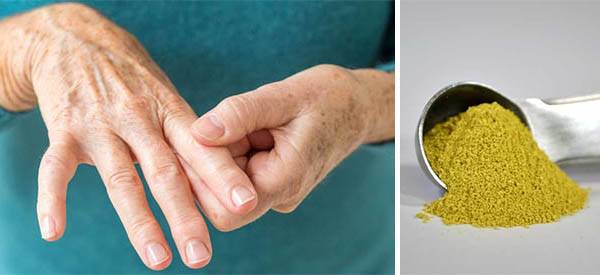
What Is Quercetin? Benefits, Dosage, and Side Effects
Quercetin is a naturally-occurring yellow pigment, and is found in a range of fruits and vegetables. It is part of the flavonoid family, pigments that are known for their health properties, particularly their role as antioxidants.
What Are Antioxidants?
You may have heard that antioxidants are good for you, but what do they actually do?
To understand how antioxidants work, first we need to look at free radicals. Free radicals are unstable molecules that are produced routinely within our body. They play an important role in inflammation and attacking pathogens, but if there are too many of them, they can damage our own cells.
They can even activate genes to promote an unnecessary inflammatory response in the long-term. Excessive amounts of free radicals have been linked with chronic disease, including heart disease, cancer, rheumatoid arthritis and diabetes.
Antioxidants support our body in controlling the level of free radicals, protecting our cells. They can do this by binding to the free radicals to stop them contacting the cells, or by neutralizing them, so they can’t do harm.
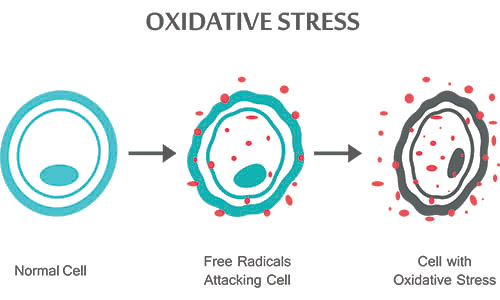
Benefits of Quercetin
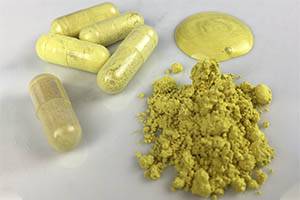 There has been a significant amount of scientific research on the effects of quercetin on inflammatory and chronic disease processes.
There has been a significant amount of scientific research on the effects of quercetin on inflammatory and chronic disease processes.
It’s important to understand that a lot of these studies have been done in laboratory settings or on tissue processes, not in human trials.
This means it is not yet scientifically proven that increasing quercetin in your diet will lead to these results.
The main question scientists are investigating at the moment is how effectively our bodies absorb quercetin from the diet, and whether the forms of quercetin that naturally end up in our bloodstream after absorption have the same effects as the forms that have been used in laboratory settings.
That said, the laboratory results about the molecular effects of quercetin are convincing, and there are some studies correlating quercetin-rich diets with health benefits in people.
Chronic Disease
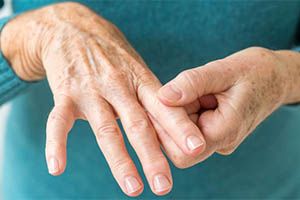 Research has shown that daily consumption of quercetin supplements can reduce chemical indicators of inflammation in the bloodstream.
Research has shown that daily consumption of quercetin supplements can reduce chemical indicators of inflammation in the bloodstream.
There is also a link with improved symptoms for sufferers of chronic inflammatory disease, such as rheumatoid arthritis.
Cancer
Laboratory results suggest quercetin may influence a number of types of cancer cells to suppress tumor growth. Although this has not yet moved to the stage of human trials, a link has been found between high-quercetin diets and reduced risk of pancreatic cancer.
Allergies
It has been suggested that quercetin can suppress histamine, and so help reduce symptoms in allergy sufferers. Although there are not yet any human studies to support this claim, it is supported by laboratory tests.
Degenerative Brain Disorders
Diets high in quercetin have been linked to reduced likelihood of degenerative brain conditions, such as dementia and Alzheimer’s disease, and can even reverse the symptoms in some cases.
High Blood Pressure
Separate from its antioxidant properties, quercetin acts directly on blood vessels to relax them. A number of studies have found a link between quercetin consumption and reduced blood pressure.
Dietary Sources of Quercetin
A selection of 25 common foods containing high levels of quercetin are shown in the table below. This indicates how many milligrams of quercetin are found in each 100g of the food as prepared, or ready to eat.
| Food | Quercetin (mg/100g) | Food | Quercetin (mg/100g) |
| Capers (raw) | 233.8 | Elderberries (raw) | 26.8 |
| Capers (canned) | 172.6 | Blackcurrant juice concentrate | 22.9 |
| Elderberry juice concentrate | 108.2 | Kale (raw) | 22.6 |
| Dock (raw) | 86.2 | Okra (raw) | 21 |
| Rocket | 66.2 | Chokeberry (raw) | 18.5 |
| Hot yellow peppers | 50.6 | Chia seeds | 18.4 |
| Fennel leaves (raw) | 48.8 | Cranberry juice | 16.4 |
| Red onions (raw) | 39.2 | Annual saw-thistle leaves | 16 |
| Carob flour | 38.8 | Buckwheat | 15.4 |
| Radicchio | 31.5 | Asparagus | 15.2 |
| Watercress | 30 | Cranberries (raw) | 14.8 |
| Ancho peppers | 27.6 | Goji berries (dried) | 13.6 |
| White onions (pan-fried) | 26.9 |
Source: https://www.ars.usda.gov
Quercetin is also found at lower levels in a range of other fruits and vegetables, including apples, berries, cherries, grapes, plums, guava, figs, raisins, currants and green leafy vegetables. The quercetin is usually concentrated in the skin, and there is evidence that organic varieties have higher levels of quercetin than non-organic products.
Quercetin is also found at concentrated levels in common kitchen herbs, including dill, oregano, tarragon, chives, coriander, bay leaves and juniper berries. Tea and coffee also contain quercetin at low levels, and are sometimes the main sources of quercetin for people whose diet is lacking fruits and vegetables.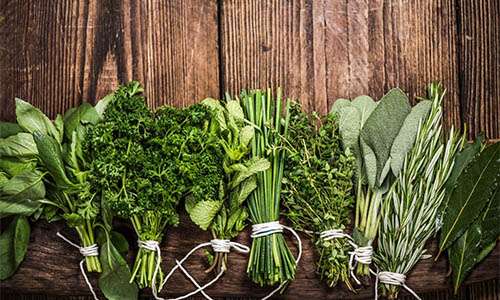
Quercetin is also available as a dietary supplement, either as capsules or as a powder. There is evidence that quercetin taken on its own has low bioavailability, meaning our bodies do not absorb it well. It is better absorbed and is more effective if it is combined with other natural substances, such as vitamin C and other flavonoids. Some supplements contain vitamin C to aid absorption of quercetin.
It is likely that incorporating natural sources of quercetin into your diet will provide the best chances of your body absorbing and using quercetin.
Dosage
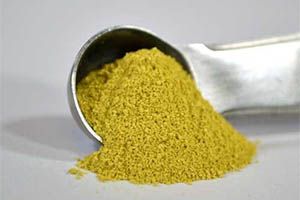 Estimates of average quercetin consumption vary: some research suggests a person consuming an average diet will take in between 10 and 100mg quercetin every day, while others suggest the figure to be around 25 to 50mg.
Estimates of average quercetin consumption vary: some research suggests a person consuming an average diet will take in between 10 and 100mg quercetin every day, while others suggest the figure to be around 25 to 50mg.
Quercetin supplements usually come in doses of 500mg, to be taken once or twice a day. Most research on the benefits of taking quercetin supplementation have been based on doses of 500mg per day.
If you are looking to increase your quercetin intake from your diet, adding in portions of high-quercetin foods from the table above will help, and choosing organic or home-grown produce may have an even better effect. It is also worth considering how you are cooking your food.
Quercetin is quite resistant to heat, so it’s not necessary to move to a raw diet to get high levels, but the cooking process affects the amount of quercetin available.
 Taking onions as an example, quercetin levels per 100g are in fact higher in baked and pan-fried onions than in raw onions, as the cooking process helps to release quercetin from the onion cells.
Taking onions as an example, quercetin levels per 100g are in fact higher in baked and pan-fried onions than in raw onions, as the cooking process helps to release quercetin from the onion cells.
But when boiled, quercetin moves into the water and so the amount of quercetin available is reduced by around 30%.
Side Effects
Quercetin is generally thought to be safe to consume up to fairly high levels, particularly in dietary form. Supplemental doses of over 1000mg per day have sometimes been associated with mild headaches and stomach aches, and very high doses delivered by intravenous injection have been associated with kidney failure.
Quercetin supplements have not been evaluated for use by pregnant or breastfeeding women. It has also been shown to interact with some medications, particularly antibiotics and medicines that are processed by the liver. So if this applies, you should speak to your doctor before starting to take quercetin supplements.
You may also like:
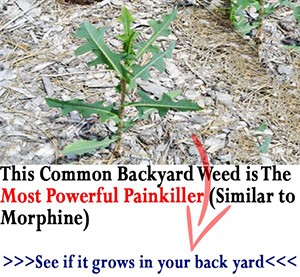 How I Make My Own Cough Mixture
How I Make My Own Cough Mixture
Erratic Blood Sugar? Never Eat This Veggie (Video)
Best Natural First Aid: Stops Bleeding In 10 Seconds!
Just Like Doxycycline: The Antibiotic That Grows in Your Backyard






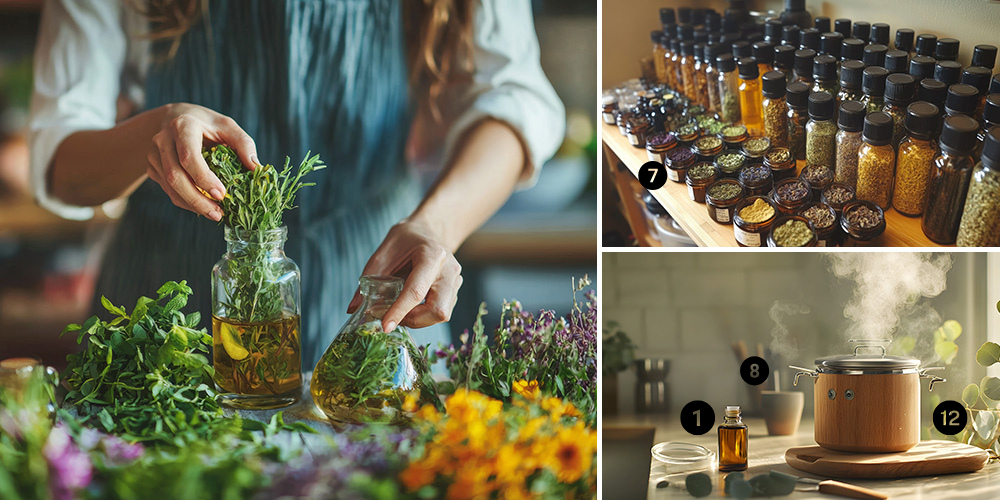
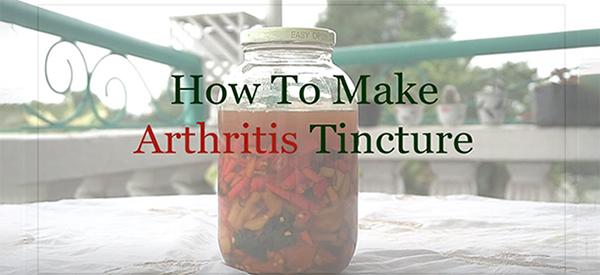
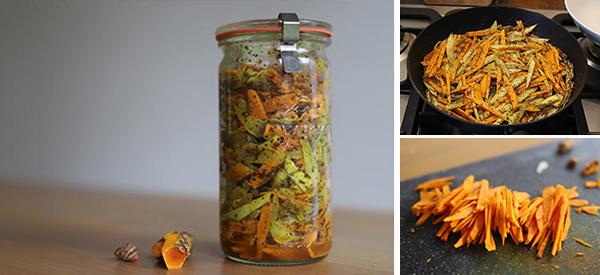
can you buy quercetin anywhere in pill form
After reading this article, I have just found out what quercetin is. I have been taking a supplement called Breathe from EU Natural, it contains quercetin and nettle leaves. It works great for allergies and sinus problems.
Thank you for this informative article on Quercetin. I’m so grateful for the wealth of information you share on a plethora of subjects surrounding health, healing, nutrition, herbals (and the list goes on!). I’ve been an ardent user of Black Current Juice for many years; but, am now considering changing over to Elderberry Juice.. Thanks fot the table listing the higher sources of Quercetin in foods.
Hi Phyllis,
Thank you so much for your comment.
We truly appreciate your feedback!
God bless!
Apparently Dandelions have quite a bit of Quercetin based on this article.
https://clinicalherbalism.com/dandelion-and-its-constituents/
Hi Tony,
Thank you so much for your comment.
Yes, dandelion has been used for diuretic, choleretic, anti-inflammatory, anti-oxidative, anti-carcinogenic, analgesic, anti-hyperglycemic, anti-coagulatory and prebiotic effects and indeed contain quercetin!
God bless!
Hi Ladder,
Thank you so much for your comment and for your feedback as well.
Please let me know if you have any question regarding this article.
God bless!
[…] What Is Quercetin? Benefits, Dosage, and Side Effects […]
For plants containing Quercetin you mention using raw dock. Which dock? Yellowdock? Burdock? What? Thank you.
WARNING: Those who have cancer might mistakenly high-dose quercetin. Blood in the urine from kidney damage may become evident. Low dose CONSISTENTLY (every day), some have suggested 10mg /kg of body weight. Research quercetin at NIH.gov . Even though FDA will not approve any neutriceuticals to treat illness, FDA has given Big Pharma approval, holding them harmless without legal action, to put quercetin in chemo therapy drug concoctions. $how me the money?
Hi , I have high inflammatory markers . Some diagnosed me with RA , some say it was limes from going for walks in the woods during Covid . I’m on Plaquinol and a limes antibiotic and a very low dose of pregnezone . I fought all of it . . Frankly, I don’t think I have either . I lost my job , business and house up north and moved due to Covid . I think it’s situational . I lost 25 lbs , my bloodwork is good and I feel good . My diet is stellar . I wander If taking quercetin would help my inflammatory markers. I want to give the meds the boot . I already get quercetin with my diet . Thank you for all of your advice .